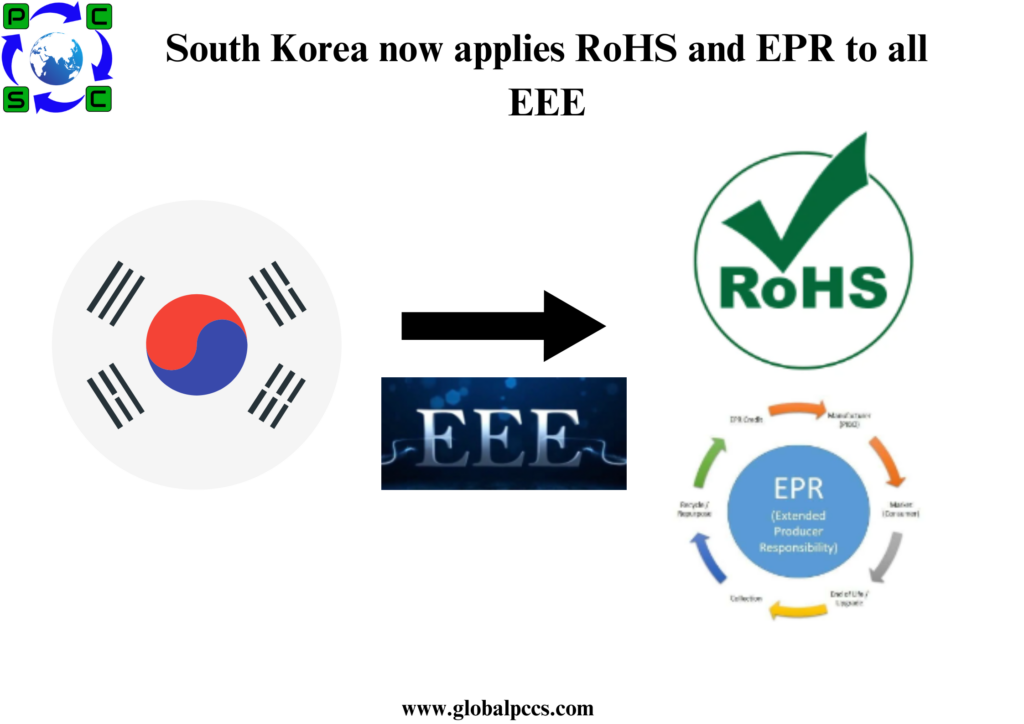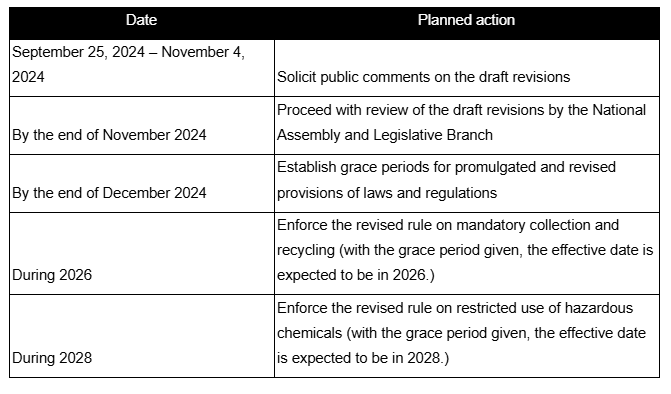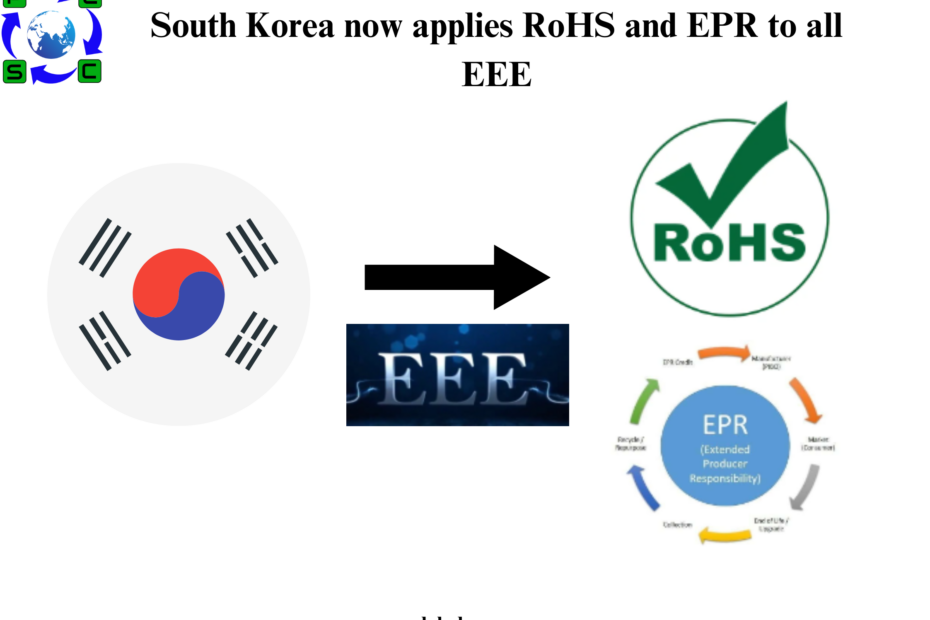 On September 25, 2024, the Ministry of Environment (MOE) of South Korea announced draft revisions of the Enforcement Order and Enforcement Rules of the Resource Circulation of Electrical and Electronic Equipment and Vehicles Act (hereafter, “Resource Circulation Act”), which corresponds to the RoHS (Restriction of Hazardous Substances) and WEEE (Waste Electrical and Electronic Equipment) Directives and EPR (Extended Producer Responsibility) system. The primary revision proposed is expansion of the scope of RoHS and EPR rules from the current ~50 products to ALL electrical and electronic products. Major revisions proposed are summarized as follows.
On September 25, 2024, the Ministry of Environment (MOE) of South Korea announced draft revisions of the Enforcement Order and Enforcement Rules of the Resource Circulation of Electrical and Electronic Equipment and Vehicles Act (hereafter, “Resource Circulation Act”), which corresponds to the RoHS (Restriction of Hazardous Substances) and WEEE (Waste Electrical and Electronic Equipment) Directives and EPR (Extended Producer Responsibility) system. The primary revision proposed is expansion of the scope of RoHS and EPR rules from the current ~50 products to ALL electrical and electronic products. Major revisions proposed are summarized as follows.
1. All electrical and electronic products must be collected and recycled
Currently, manufacturers and importers of 50 types of electrical and electronic products, such as washing machines and refrigerators, are required to collect and recycle wastes of such products.
Under the draft revision, the scope of products subject to the obligation to collect and recycle is proposed to be expanded to ALL electrical and electronic products.
It should be noted that MOE intends to exempt certain items, such as industrial equipment and military equipment, from this rule (mandatory collection and recycling). The MOE also stated that small-sized manufacturers with sales of less than 1 billion won (approximately 722,000 USD) and small-sized importers with imports of less than 300 million won (approximately 217,000 USD) will continue to be exempt from this rule.
2. For ALL electrical and electronic products, use of any hazardous chemicals specified in the Resource Circulation Act shall be restricted
Under the current Resource Circulation Act, the use of lead, mercury, hexavalent chromium, PBBs, PBDEs, DEHP, BBP, DBP, DIBP, or cadmium (10 substances in total) is restricted for a total of 49 types of electrical and electronic products, as a domestic rule corresponding to the RoHS Directive.
Meanwhile, under the draft revisions, the scope of the restriction on the use of above 10 hazardous chemicals is expanded to ALL electrical and electronic products. This means that all manufacturers and importers of electrical and electronic products will be required to comply with the applicable concentration standards for the 10 hazardous chemicals.
However, the proposed drafts also include exemption for this restriction rule, which will be the same as the exemption for mandatory collection and recycling as mentioned in item 1 above.
According to MOE, the above proposed revisions are planned to be promulgated and enforced pursuant to the following schedule.









 Authorised IMDS & CDX Training & Consulting partner for
Authorised IMDS & CDX Training & Consulting partner for







Pingback: What Mongolia Can Learn From South Korea’s Waste Management System – The Diplomat – Wordup News Bytes
Comments are closed.